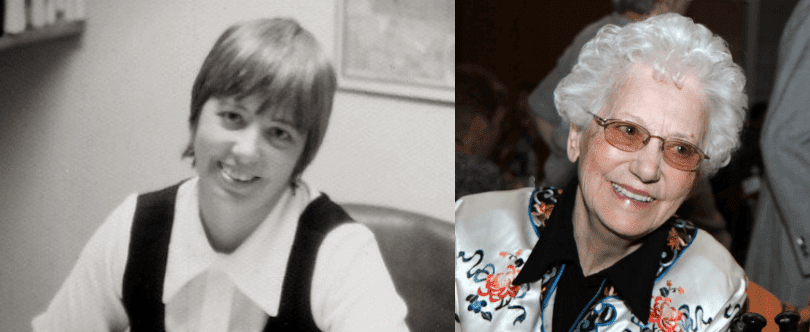On Thursday, June 9, 2016, former Institute staff member Olga Zoltai passed away. Olga was a tireless advocate for refugees and immigrants. Her tenacity and dedication improved the lives of thousands of New Americans in our community. A refugee herself–at the age of 13, Olga and her family fled her hometown of Sopron, Hungary as Soviet forces invaded–Olga worked at the International Institute of Minnesota from 1971 to 1993. During her years at the Institute, Olga designed innovative programs that responded to the needs of New Americans, transforming and strengthening our community.
 When Olga heard that a new federal program to resettle refugees was beginning in 1974, she knew the Institute had to do this work. The Institute’s Executive Director was on his honeymoon in Thailand when Olga heard about this opportunity. No one knew exactly where in Thailand he was honeymooning, but they did know he would not be back until after the application deadline had passed. Not to be deterred, Olga began calling hotels to see if a guest matching his description was staying there. She eventually found him, received his approval, and applied. Thanks to Olga, the Institute has welcomed more than 25,000 refugees to our community.
When Olga heard that a new federal program to resettle refugees was beginning in 1974, she knew the Institute had to do this work. The Institute’s Executive Director was on his honeymoon in Thailand when Olga heard about this opportunity. No one knew exactly where in Thailand he was honeymooning, but they did know he would not be back until after the application deadline had passed. Not to be deterred, Olga began calling hotels to see if a guest matching his description was staying there. She eventually found him, received his approval, and applied. Thanks to Olga, the Institute has welcomed more than 25,000 refugees to our community.
Olga was the caseworker who welcomed the first Hmong refugees to Minnesota in February 1976. She got the call of their arrival the night before the family’s 6 a.m. arrival. The youngest child arrived wearing just a t-shirt, but Olga and the church sponsoring the family brought blankets to the airport.
It is now common for refugee resettlement agencies to have caseworkers who are from the communities they serve, and it was Olga who hired the first bi-lingual case manager in Minnesota.
Olga founded the Nursing Assistant Training Program in 1991 to provide New Americans access to entry-level jobs in healthcare. In the program’s 25 years, more than 1,900 nursing assistants have been employed. At a recent Nursing Assistant graduation, the class speaker declared: “Today is the greatest accomplishment of our lives. Today, we begin our lives as caregivers. You are changing not just our lives, but our family’s lives as well.”
Additionally, Olga worked on hundreds of political asylum cases and was known to be a unwavering advocate for those the most complex cases.
“I was so lucky, you know?” Olga said when she reflected on her life’s story. When her chance came, “I was able to help.”